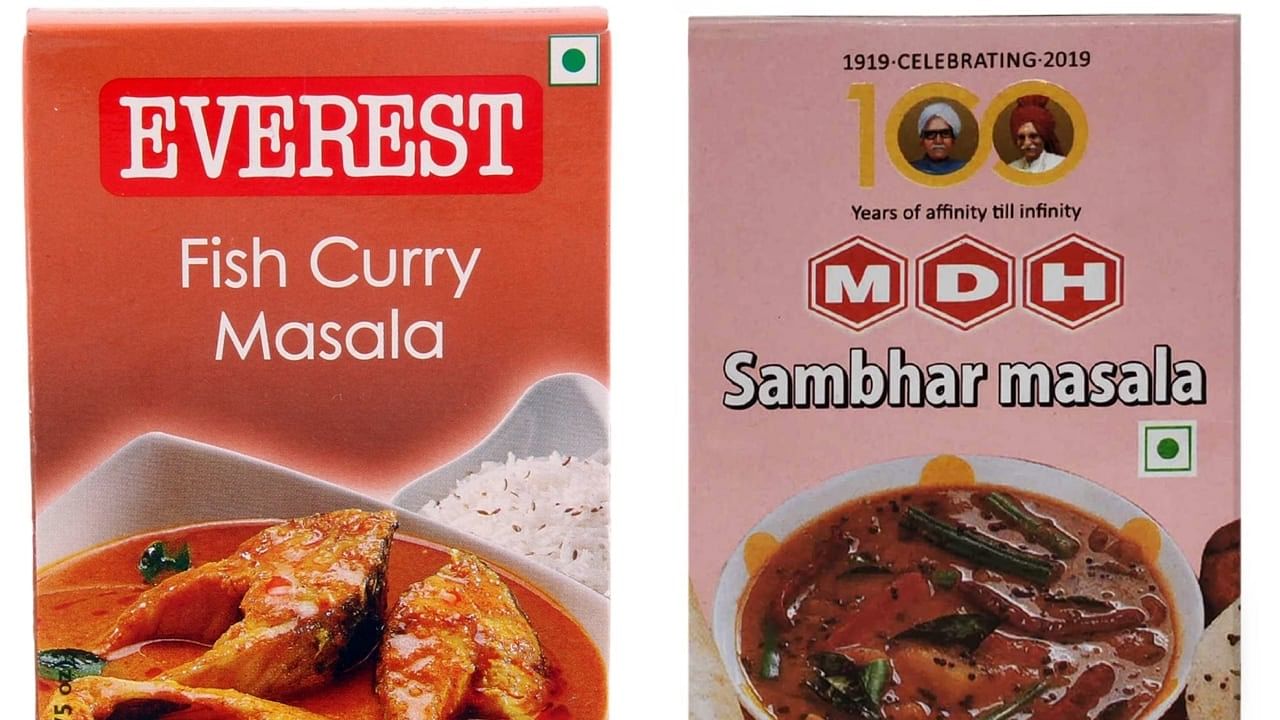
Everest Fish Curry Masala and MDH's Sambhar Masala are among the products Hong Kong has banned.
Credit: Amazon
New Delhi: Following the import-ban decision by a few countries on some of the Indian brands of spices, the Food Safety and Standards Authority of India (FSSAI) on Monday said it would carry out random testing of spices and culinary herbs this year along with four other types of food products.
While the apex food regulator said nearly a quarter of the samples it tested in the last three years didn’t clear the regulatory standards, it didn’t share the outcome of a pan-India testing of the spices it carried out two years ago.
“Surveillance is planned in 2024-25 for fruit and vegetables, salmonella in fish products, spice and culinary herbs, fortified rice and milk and milk products,” the FSSAI said in a statement released by the Union Health Ministry.
The announcement from the apex food regulator comes weeks after authorities at Hong Kong asked the public not to consume and the trade market to stop selling some of the products manufactured by MDH and Everest. Days later the Singapore Food Agency had also recalled one of the products exported by India to Singapore.
They took the action after a chemical called ethylene oxide used as a pesticide and fumigation agent was allegedly found to be above permissible levels in some spice mixes manufactured by the two brands, even as the two companies denied using it. The European Union too found ethylene oxide contamination in Indian spices in the past.
The FSSAI in its first statement since the controversy broke out, said in the last three years nearly a quarter of the samples it tested, was not in conformity with the regulatory standards.
In 2020-21 nearly 26% of samples failed the test followed by 23% in 2021-23 and 25% in 2022-23. In the current fiscal, over four lakh samples have been tested by the FSSAI, but the final data is being collected.
Since 2018, the regulator carried out surveillance on several types of food items, including spices that were tested in 2022. The FSSAI tested 3554 samples, but the outcome has not been released in the public domain. A query to the food business regulator on the results has not elicited any response.
Other food items that the agency has tested in the past include milk and milk products, edible oil, jaggery, tea, pulses and fortified rice kernels. There have also been surveys to find out the extent of trans-fat presence in day-to-day food.
